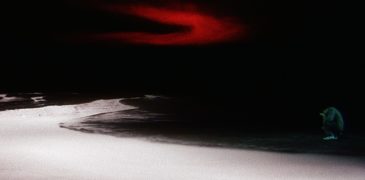
Sometimes you luck into a genre film so good that you feel the need to champion it, to place your hopes in it to reach the hearts and minds of many and call it the next great leap forward. Chi Zhang’s Annular Eclipse, a Chinese cyberpunk actioner with lofty aspirations and many qualities, feels like a breath of fresh air for sci-fi and Asian cinema, a lot like Bong Joon-Ho’s Snowpiercer felt almost a decade ago.
Immediately, two things are apparent about this one: it looks absolutely amazing, on the same level with Villeneuve’s Blade Runner 2049, but with a budget probably 10-20 times smaller, and it is no stranger to surreal imagery. It borrows themes, visual motifs and techniques from: Possessor (assassins and stealing bodies), Blade Runner (the whole look and the female characters), Christopher Nolan’s movies (some shots, the Bane-looking villain, the focus on memories), revenge thrillers (I have to mention Oldboy here), the original Ghost in the Shell (this one isn’t as overt, but just as GITS had major Ship of Theseus parallels going on, this one has parallels to Homer’s Odyssey) and, finally, has some Bong Joon-Ho-like social commentary on the rich exploiting the poor.
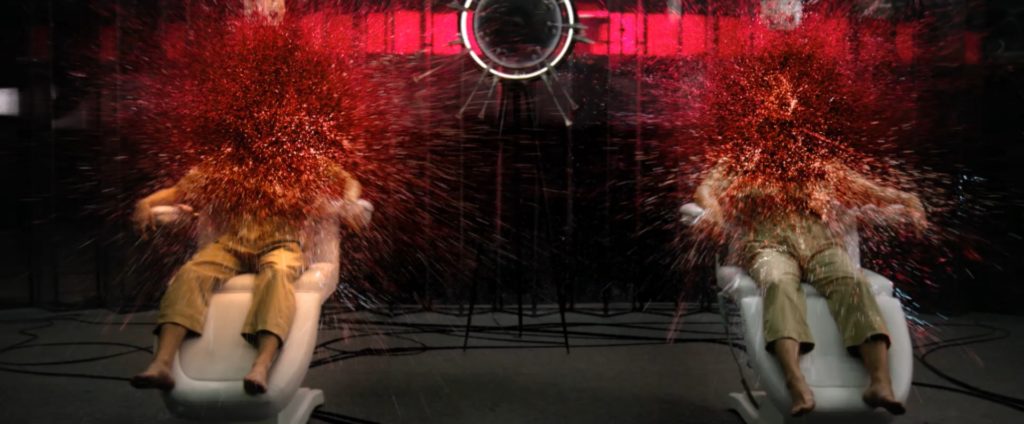
For those who aren’t used to Asian cinema, figuring out the plot in the first half of the film might seem like a monumental task: two assassins, one male – Ge Jun – and one female – Song Yan – kill a lot of characters who seem to be related to a corporation dealing with implanting memories in order to save Alzheimer patients. Ge Jun is more of a ‘breaking doors’ type, while Song Yan is sort of like his handler (and lover), but she steps in occasionally from the shadows to save the day. After a love scene that feels so suffocating in its depiction of intimacy that it made me think of Pen-ek Ratanaruang’s films, we notice that Ge is having flashes of past memories, and he starts looking into the company, while fighting other assassins and a hulking face-mask-wearing villain (Bane, anyone?)
All of this is happening while there is a looming, once-in-a-millennium event: the titular annular eclipse, a phenomenon that causes objects’ reflections to overlap and people to have multiple shadows. In a heartwarming moment of awesome, Ge thinks out loud ‘multiple shadows, but only one direction’, and Song wistfully says ‘my direction is you’. In fact, how Song is written was my one problem with the movie, at first: cyberpunk movies have had a history of female characters that are, at best, just flavor and at worst…like what Brit Marling in her influential NY Times article ‘I Don’t Want To Be The Strong Female Lead’ when she namedrops Blade Runner 2049 – ‘In pop culture, women are often objectified and disposed of’. So I was glad that, in the end, Song has a pivotal part to play in the movie’s denouement, and while she is not a ‘strong female lead’, she might actually pass Marling’s test under a more careful eye.
There is, like I said above, a lot more going on here than just the fact that the movie nails the cyberpunk aesthetic and could get by on the ‘rule of cool’ alone – just like Oshii’s GITS dared to ask us if we will be the same ‘us’ after extensive cybernetic modfication, so does this posit that the soul might be in fact comprised of our memories, and that body and soul are one, and elevates its storytelling with allusions to Homer’s Odyssey – if Ge is Odysseus and he is meant to come home (recover his memories), than is Song his Penelope? Or is she someone else from that story? And why does the memory corporation chief doctor have a statue of Odysseus in his office that he clearly worships?
Lastly, there is the social commentary – the corporation promises to ‘fix’ Alzheimer by inserting childhood memories at a turning point in the patient’s history, but is in fact a backdoor for the exploitation of poor people by the insanely rich, who plan to live forever by implanting their memories in younger bodies again and again – they ‘sponsor’ poor recruits gathered by the company in a testing compound and they promise them ‘rebirth’ after they’re done with them, and the simple fact that they will never have to starve again. The theme of revenge is prevalent – much like in Oldboy, a revenge plot is revealed in the film’s climax, turning everything on its head, but there is an undercurrent of rage permeating every scene – and just like with Snowpiercer having the poor people fight back, so does this movie delight us with a scene where a crowd of the oppressed dare to take back their lives and their bodies.

Clearly, Annular Eclipse has a lot going on, and one viewing might not be enough to grasp everything it achieves to do. In this review, I make so many comparisons to past works to highlight that this both is an important work of art and a bold step forward for Chinese cinema, which has long produced smaller-scale, underseen films that are difficult to pin down (two of my favorites were Honey PuPu and Lee’s Adventure, and I used to think I preferred Chinese movies for how good they looked), and the sci-fi genre – this might not be the second coming of Neuromancer, but let’s not forget that Gibson was the prophet of cyberpunk, and there might be some ‘Burning Chrome’ in this, for his fans. With not a dull moment and being a feast for the senses AND the brain, this was perhaps the most distinctive work at the 2021 Dracula Film Festival, and I was glad for having been able to see it and spread the word.
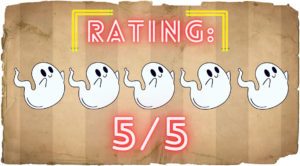
We watched Annular Eclipse as part of our Dracula Film Festival coverage.
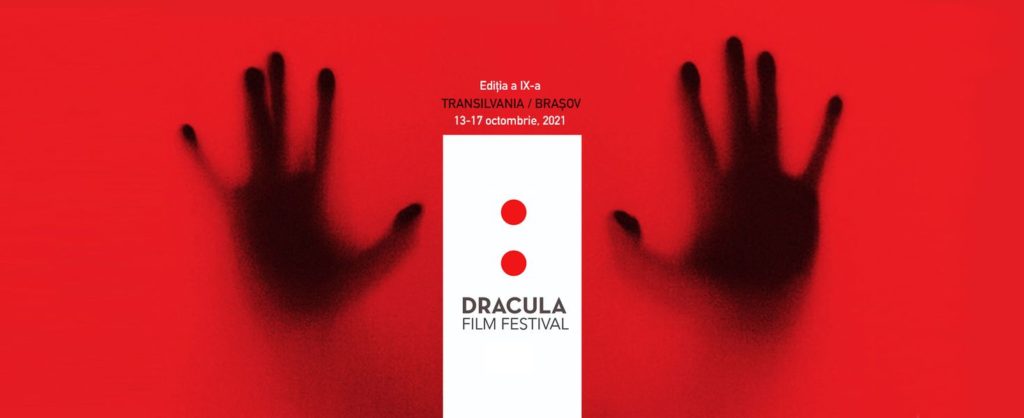
More Film Festival Coverage
When Paul’s chance of winning a national talent competition are ruined & his dreams of fame slashed, he plans a deathly revenge mission. 1 lunch break, 5 spectacular murders. Will… The Curse is a 2025 Japanese/Taiwanese supernatural horror film written and directed by Japanese filmmaker Kenichi Ugana. A prolific up-and-coming horror director, Kenichi has written and directed a slew of… Jigoku narrates the tragedy of unatoned wickedness with poetic piquancy, proving that Japan and horror are efficacious accessories that constantly innovate cinema. As expected from the monumental master of Japanese… Blood in the Snow (BITS) is a Toronto-based horror film festival that is presenting its 9th annual line-up at the Royal Alexander Theatre from November 18-23, 2021. Festival director Kelly… The found footage film subgenre still has it. I never knew a FF film could be as profound as it is scary, given that its restricted legroom can only do… As an anthology film, Sinphony has different directors for each segment: Sebastien Bazile (“Symphony of Horror”), Haley Bishop (“Forever Young”), Nichole Carlson (“Maternally Damned”), Wes Driver (“The Keeper”), Kimberley Elizabeth…Paul Dood’s Deadly Lunchbreak (2021) Film Review – British Dark Comedy… with Glitter
The Curse (2025) Film Review – I Put a Spell on You [Fantastic Fest 2025]
Jigoku (1960) Film Review – A Hellish Tour de Force
Blood in the Snow Film Festival BITS 2021- Short Films Spotlight
The Outwaters (2022) Film Review – Is Humanity Pointless After All?
Sinphony (2022) Film Review- An Anthology of Harmonic Evil
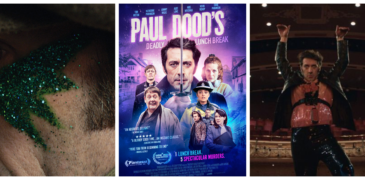
![The Curse (2025) Film Review – I Put a Spell on You [Fantastic Fest 2025]](https://www.grimoireofhorror.com/wp-content/uploads/2025/09/The-Curse-cover-365x180.jpg)
